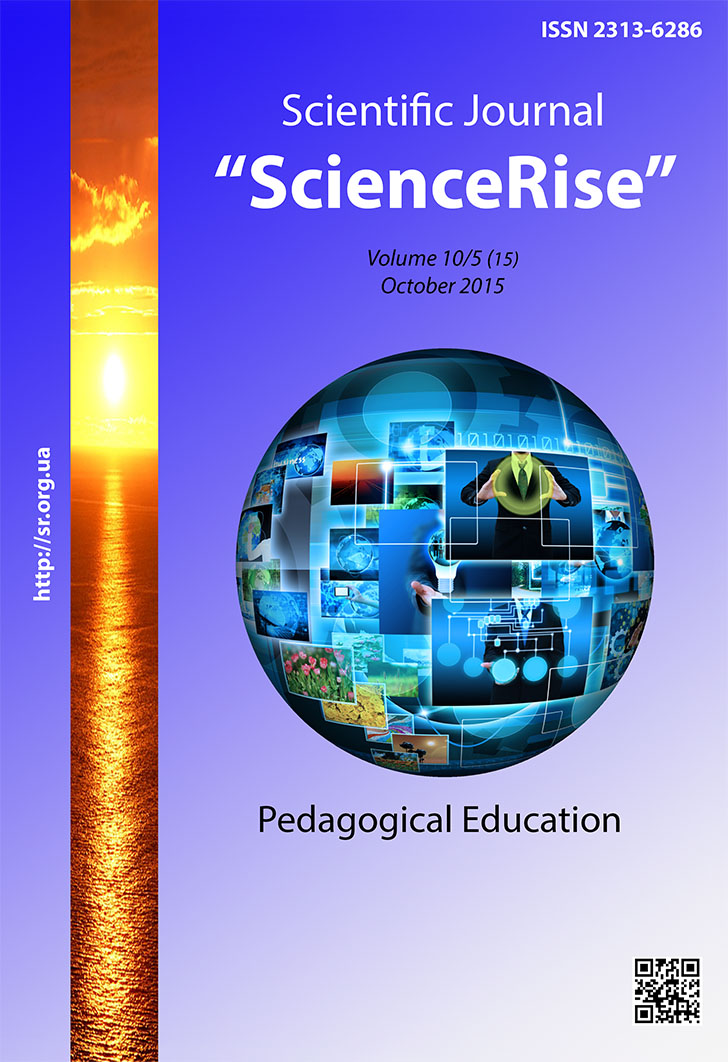Пути повышения качества профессионализма воспитателей-педагогов при внедрении в практику дошкольных образовательных учреждений развивающего обучения
DOI :
https://doi.org/10.15587/2313-8416.2015.52099Mots-clés :
образование, кадровая подготовка, личность, pазвивающее обучение, курикулум, методы, формы, повышение качестваRésumé
В статье раскрываются вопросы подготовки воспитателей-педагогов при внедрении в дошкольных учреждениях «Курикулума дошкольного образования в Азербайджанской Республике». Указываются трудности и положительные стороны в работе педагогов, внедряющих развивающее обучение. Обновление образования требует от воспитателей-педагогов дошкольных учреждений знаний тенденций инновационных изменений, происшедших в этой системе, целей, содержания, форм и методов работы
Références
The Republic of Azerbaijan preschool program (curriculum) (2014). Baku: IEP Educational Technology Center, 96.
Vygotsky, L. S. (1982). Thought and Speech. Vol. 2. Collected Works. Moscow: "Pedagogy", 556.
Davydov, V. V. (1996). The theory of developmental education. Moscow: INTOR, 544.
Yakimanskaya, C. (1995). Challenges of training and development in the works N. A. Menchinskaya. Questions of psychology, 3, 79–90.
National Strategy for the Development of Education in the Republic of Azerbaijan from June 19, 2009 № 833-IIIQ (2013). Available at: http://base.spinform.ru/show_doc.fwx?rgn=29005
Alizadeh, A. (1998). Modern psychological problems of the school. Baku: "Ozan", 97.
Ahmadov, A., Abbasov, A. (2011). Conceptual problems of preschool education. "The teacher" newspaper, 18.
Turakulova, M. M. (2015). Problems of training and retraining of teachers kadrov preschool educational institutions for innovative activity. Young Scientist, 14, 532–533.
State-owned Azerbaydzhanskoy Strategy on Education of the Republic (2013). "Azerbaijan muallymy".
Téléchargements
Publié-e
Numéro
Rubrique
Licence
(c) Tous droits réservés Бахышева Шарафат Арам кызы 2015

Cette œuvre est sous licence Creative Commons Attribution 4.0 International.
Our journal abides by the Creative Commons CC BY copyright rights and permissions for open access journals.
Authors, who are published in this journal, agree to the following conditions:
1. The authors reserve the right to authorship of the work and pass the first publication right of this work to the journal under the terms of a Creative Commons CC BY, which allows others to freely distribute the published research with the obligatory reference to the authors of the original work and the first publication of the work in this journal.
2. The authors have the right to conclude separate supplement agreements that relate to non-exclusive work distribution in the form in which it has been published by the journal (for example, to upload the work to the online storage of the journal or publish it as part of a monograph), provided that the reference to the first publication of the work in this journal is included.

